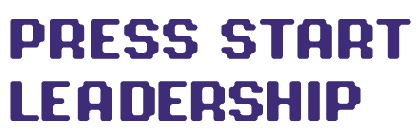Navigating Challenges and Seizing Opportunities in the Dynamic World of Game Development
The world of video games, while filled with creativity, innovation, and passion, is also fraught with uncertainty and risk. From shifting market trends to technological advancements and ever-evolving player expectations, leaders in the gaming sector constantly find themselves on the precipice of critical decisions. Navigating these uncertainties and effectively dealing with risk is what separates the trailblazers from the rest. In this article, we dive deep into understanding the unique risks in the video game industry and how leaders can strategically approach them.
Understanding the Risk Landscape in the Video Game Industry
The first step to dealing with risk is to understand its nature. The video game industry, given its technological basis and entertainment-driven core, presents a range of risks:
-
Technological Risks: With advancements like AR, VR, and cloud gaming, there’s always a new frontier to explore. Adopting a new technology too early or too late can have consequences.
-
Market Risks: Player preferences can be fickle. A genre that’s in vogue today might be passé tomorrow. Betting heavily on a trend can be a double-edged sword.
-
Financial Risks: Game development is expensive. Misjudging budgets, revenue projections, or funding rounds can put a company in jeopardy.
-
Operational Risks: This includes risks related to development delays, talent management, and unforeseen crises like cybersecurity threats.
-
Reputational Risks: In today’s connected world, a PR mishap, a poorly received game, or allegations against a company or employee can damage a brand’s reputation significantly.
Building a Risk-Resilient Leadership Mindset
It’s not the absence of risk but the strategy to manage it that defines successful leadership. Here’s how leaders can foster a risk-resilient mindset:
-
Embrace Uncertainty: Accept that risk is a given. By acknowledging its inevitability, leaders can approach it proactively rather than reactively.
-
Stay Informed: Leaders must always have their fingers on the pulse of the industry. Regularly consuming industry news, attending conferences, and engaging with peer networks can provide early warnings about emerging risks.
-
Foster Open Communication: Encourage team members to voice their concerns and opinions. Sometimes, those closest to the work can spot risks before they become apparent at higher levels.
Strategies for Effective Risk Management
1. Comprehensive Risk Assessment: At regular intervals, undertake a thorough risk assessment. This involves identifying potential risks, gauging their probability, and assessing their potential impact.
2. Prioritize Risks: Not all risks are created equal. Some might have a minor impact but are highly likely, while others could be catastrophic but improbable. Leaders need to determine which risks warrant immediate attention.
3. Develop Contingency Plans: For high-priority risks, establish detailed action plans. This might involve mitigation strategies or plans to address the fallout should the risk materialize.
4. Diversify: Just as investors are advised not to put all their eggs in one basket, game companies should diversify their portfolios. This could mean exploring multiple genres, platforms, or revenue models.
5. Insure Against Risks: While not all risks can be insured against, some, like operational disruptions or cybersecurity breaches, can be. Engage with insurance professionals to understand suitable coverage options.
6. Stay Agile: In a dynamic industry, rigidity can be a liability. Adopt agile methodologies that allow for swift pivots when confronted with unforeseen risks.
Learning from Mistakes
Even the best-laid plans can go awry. The mark of a strong leader isn’t in avoiding mistakes but in learning from them:
1. Encourage a No-Blame Culture: When things go wrong, the focus should be on understanding the missteps and preventing future recurrences, not on assigning blame.
2. Document Failures: Maintain a record of projects that didn’t go as planned. Periodically review these to glean lessons and ensure that past mistakes aren’t repeated.
3. Revisit Risk Assessments: Post a setback, re-evaluate risk assessments. Understand if the risk was overlooked, underestimated, or misunderstood.
Empowering Teams in Risk Management
Risk management isn’t just a leadership task. Every member of the organization plays a role:
1. Training and Workshops: Regularly train staff in risk identification and management. Equip them with the tools and knowledge to be the first line of defense against potential threats.
2. Incentivize Risk Reporting: Encourage employees to report potential risks or issues. Recognize and reward those who proactively help in risk mitigation.
3. Decentralize Decision Making: While major decisions will always be the purview of leadership, empower lower levels to make decisions in their areas of expertise. They might have insights that senior leadership might not be privy to.
Leveraging Technology in Risk Management
In an era of rapid technological advancements, it’s only fitting that leaders in the video game industry harness technology to address risks. Here’s how:
1. Data Analytics: The vast amounts of data generated during game development and post-launch can offer invaluable insights. Analyzing this data can uncover patterns, anomalies, or potential issues before they escalate.
2. Real-Time Monitoring Tools: Tools that offer real-time insights into various facets of game development, such as player engagement metrics, server loads, or security threats, can help teams respond to issues instantaneously.
3. Collaboration Platforms: Ensuring seamless communication across geographically dispersed teams can mitigate operational risks. Tools like Slack, Teams, or Trello can keep everyone on the same page.
Engaging with the Wider Community
The video game industry is unique in the passion and engagement levels of its user base. Tapping into this community can be a goldmine for risk mitigation:
**1. Beta Testing: Before a full-scale launch, releasing a game for beta testing can provide invaluable feedback. This can help identify bugs, gameplay issues, or potential controversies.
2. Open-Source Collaborations: Sometimes, the collective wisdom of the community can address risks faster than an internal team. Open-sourcing certain aspects or seeking community collaboration can be beneficial.
3. Staying Active on Forums: Platforms like Reddit, Discord, or even Twitter can offer real-time feedback from the gaming community. Leaders should ensure their teams are active on these platforms, gauging sentiments, and addressing concerns.
Building Resilience Through Financial Prudence
Financial risks are among the most pressing concerns in the video game industry. Here’s how leaders can build financial resilience:
1. Prudent Budgeting: While optimism is a commendable trait, it’s essential to base budgets on realistic projections. This involves accounting for potential cost overruns, market fluctuations, or unforeseen expenses.
2. Securing Funding: Whether through venture capital, crowdfunding, or other means, securing adequate funding well in advance can offer a cushion against financial risks.
3. Monetization Strategies: Diversifying revenue streams, be it through in-game purchases, ads, premium versions, or subscription models, can ensure consistent cash flows.
The Ethics of Risk Management
In the quest to mitigate risks, it’s essential not to lose sight of ethical considerations:
1. Player Welfare: While it might be financially lucrative to encourage incessant gameplay, leaders should consider the implications on player well-being. Features like reminders to take breaks or parental controls can mitigate reputational risks.
2. Fair Monetization: While in-game purchases can be a revenue spinner, they should be implemented ethically, ensuring players don’t feel compelled to spend to progress.
3. Data Privacy: With data breaches becoming alarmingly common, ensuring robust cybersecurity and respecting player data privacy is non-negotiable.
Looking Ahead: The Future of Risk Management
The nature and scale of risks in the video game industry are bound to evolve. Leaders should always be forward-thinking in their risk management approach:
1. Continuous Learning: Encourage a culture where teams are always updating their skills, be it in emerging technologies, project management methodologies, or market analysis techniques.
2. Collaborate with Academia: Universities and research institutions are often at the forefront of technological advancements. Collaborating with them can offer early insights into potential risks and opportunities.
3. Industry Forums: Being active members of industry associations or forums can offer networking opportunities, collaborations, and collective wisdom, helping leaders stay one step ahead in risk management.
Final Thoughts
Risk is an intrinsic part of the dynamic and ever-evolving video game industry. However, with proactive strategies, an open mindset, and the collective efforts of dedicated teams, leaders can not only navigate these uncertainties but also harness them as opportunities for growth and innovation. In the end, effective risk management is less about avoiding pitfalls and more about charting a course to new horizons.
Thank you for reading this article to the end. I hope it has been informative and helpful. If you’d like to learn more about the topics we covered, I invite you to check out my podcast and my YouTube channel where I delve into these subjects in more depth.
Additionally, I would love to stay in touch and keep you updated on all the latest developments and insights in the world of leadership. That’s why I encourage you to sign up for my newsletter. Not only will you receive regular updates, but as a thank you for joining, I will also send you my free eBook, “5 Heroic Leadership Skills.” This eBook is packed with practical tips and strategies that will help you take your leadership skills to the next level.
So don’t wait! Sign up for my newsletter today and start your journey towards becoming a more effective and inspiring leader. I can’t wait to hear from you.


